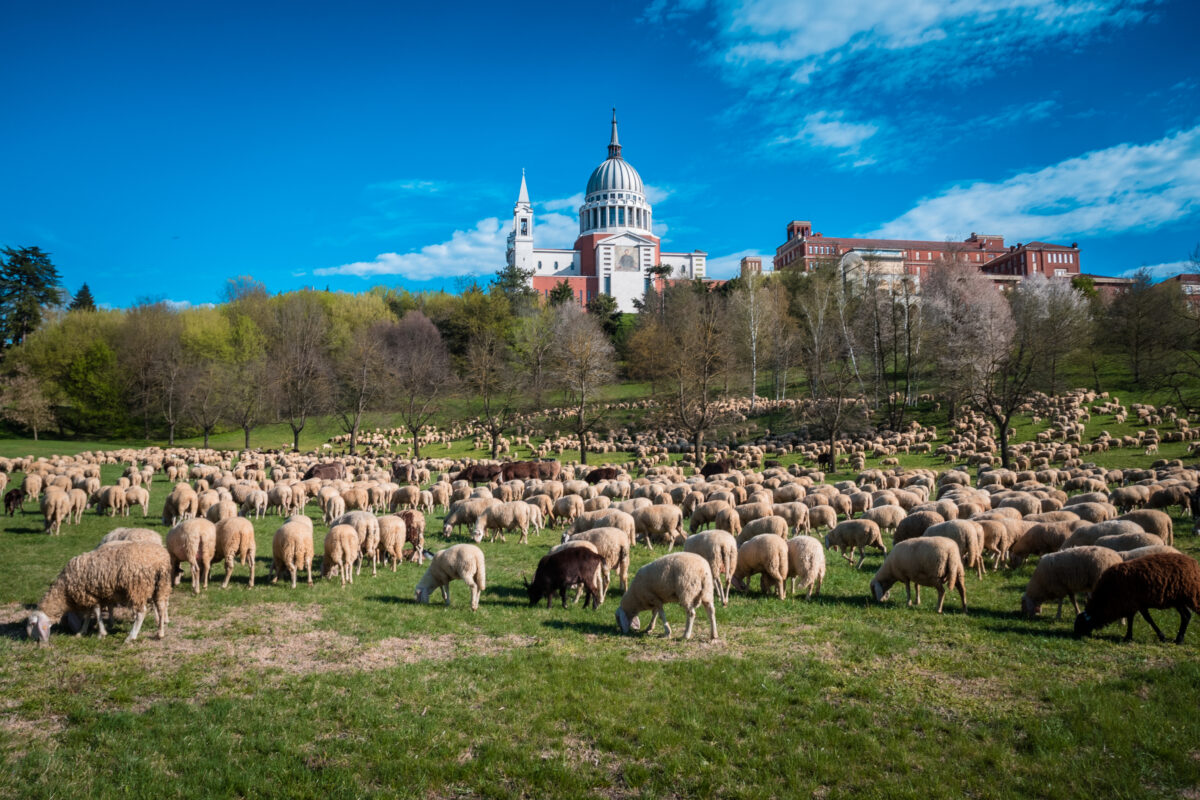For the past few weeks, I have been racking my brain trying to find a spiritual work to help soothe my soul amid the current crisis in the Church. There are many great books such as The Church in Crisis by Monsignor Philip Hughes or Steve Weidenkopf’s Light from the Darkness that address the historical triumphs of the Ark of the Church overcoming the flood of the world, but these works are written with a more historical lens than spiritual.
Spiritual works encompass an entirely different subject matter, in which they can fit themes of politics, history, or even science, but are written with the Kerygma of the Good News to feed our hungry souls. The other mentioned books do, in fact, have the fire of the Holy Spirit, but I believe that a book that is a spiritual work or classic must fall deeper into the heart of prayer to settle the soul. Enter Dom Prosper Guéranger’s The Liturgical Year, in which the future saint digs deeply into the Spirit’s word and reflects a Christological vision of all the saints, liturgical prayers, and history of Holy Mother Church. The volumes were written to correspond with the liturgical calendar of the Roman Rite in Guéranger’s time, recalling the feast days of saints and the prayers said in mass.
The volumes, however, do so much more than merely act as another text that moves through the Church’s liturgical year: it gets to the heart of why we are Catholic. Guéranger gives a lively sense of why the Church is the Bride of Christ and the temple of the Holy Spirit, showing that even amidst the worst of storms and most evil of enemies, she endures through the blood of martyrs, the glories of saints, and ultimately the Divine Providence of God.
It is amazing to see so many times in which the Church found herself in peril, and yet endured every sort of crisis that afflicted her, showing her foundation to ultimately be divine and not human. One needs only to compare her unalterable and eternal glory with those ecclesial communities or schisms that gave into the ways of a sunken world, as seen in the most recent death knell of Anglicanism to the homosexual mob. Guéranger reminds us in so many beautiful words why we believe in Christ’s promise made so many times in the Gospels.
“And behold, I am with you always, until the end of the age.”
Matthew 28:20
Our Lord’s words here in the Gospel of Matthew color the entirety of the volumes that remind us how God uses even the most broken of men and the most destitute of predicaments. One can only see the Gospel’s beauty bloom forth like a lily in spring in the following excerpt:
“Persecutions, heresies, schisms, apostasies, and scandals – all will strive to work Her ruin; but She will survive them all. The descendants of Her bitterest foes will call Her “mother.” Thrones and dynasties, nations and even whole races, will be carried away by the tide of time; She alone will subsist throughout the ages, stretching out Her arms to receive all men, teaching ever the same truths, repeating, even to the last day, the same symbol of faith, and ever faithful to the instructions given Her by our risen Jesus during these forty days preceding His ascension.”
The Liturgical Year, Dom Prosper Gueranger
This is but a taste of the soul-nourishing ointment that Guéranger’s Liturgical Year has to offer for us in such dark times and reminds us that such calamity is only preparing us for the “eternal weight of glory beyond all comparison” (2 Cor. 4:17-18). If we have constancy in prayer and look to such holy works as these, we will no doubt be filled with the peace Peter felt when pulled from the sea by Our Lord.
“I plead with you—never, ever give up on hope, never doubt, never tire, and never become discouraged. Be not afraid.”
Pope John Paul II


Comments are closed.